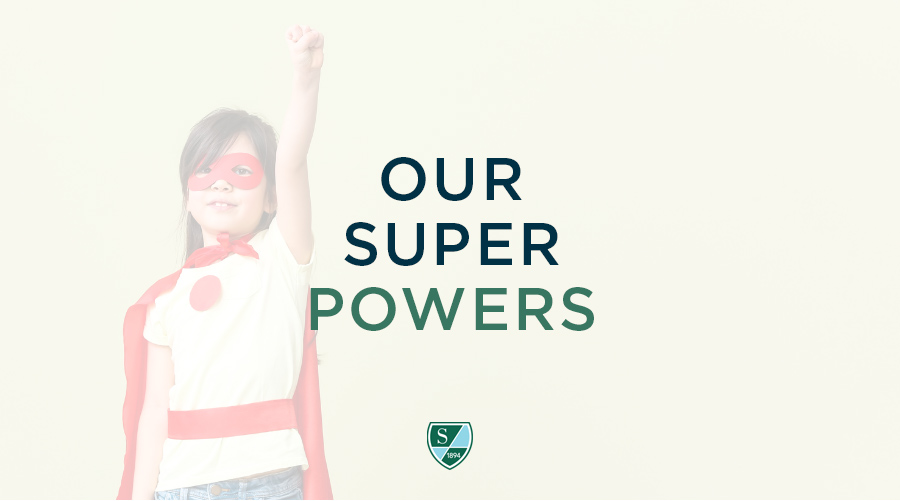860-496-2973. The phone number to my mom’s work is still ingrained in my mind. I had to dial this number from my neighbor’s house (pre-cell phones!), any time I got off the school bus and realized that I had forgotten or lost my key. Again.
My mom worked as a medical assistant in a nephrology office and it wasn’t easy for her to find time between patients’ appointments to drive home, drop off her key, and then hightail it back to work. What I also need you to understand is that my mother is Persian. Hearing her whisper to me over the phone in Farsi, “Meekoshamet - I am going to kill you,” was enough to have me praying to God, Allah, and all the Higher Powers of the Universe that I would live to see another day.
Losing my belongings, misplacing my homework, and forgetting about important tests or appointments was a running theme of my middle school years. My parents were enormously frustrated with me and the only person who was even more frustrated was myself. I couldn’t figure out what was wrong with me. Why did I have to make things so difficult for myself?
These feelings continued throughout middle and high school and along the way, I developed decent-enough mechanisms to cope with what had been labeled by various adults my “lack of focus,” “irresponsibility,” “procrastination,” “disorganization,” and my dad’s favorite: “half-assery.” By working way harder than I probably should have, I managed to graduate from high school with Honors and was accepted into the pre-medical program at The College of the Holy Cross in Worcester, MA (shout-out to Dr. Fauci!)
And then I flunked out of that program. Hard. As in: I earned a 34% on my Organic Chemistry final.
All of the combined coping skills I had developed were not nearly enough to help me sustain the day-long studying required of a pre-med student. I watched my friend Lauren, also pre-med, and now a practicing pediatric neurologist, break her studying only for meals. I, on the other hand, could only maintain focus for short bursts of time. In between these bursts, I’d have to visit the candy shop for sour watermelons, download new music on Kazaa, or even swing by my dorm for a quick nap. Old familiar thoughts returned: What is wrong with me? Why did I have to make things so difficult for myself?
It wasn’t until I was in graduate school that a psychiatrist asked me if I’d ever explored the possibility of having ADHD - Attention Deficit / Hyperactivity Disorder. I hadn’t, but I was curious. Several conversations, examinations, surveys, and tests later, I received a diagnosis for ADHD, Inattentive Type.
Receiving the diagnosis was more of a relief than anything, but the old ideas that there was something wrong with me were already ingrained, and I had to work really hard to reverse them. In due time, I learned to own this part of my identity and to even to take pride in it. I learned that despite ADHD’s frequent categorization as a “disability,” most people with an ADHD nervous system actually have significantly higher-than-average-IQs and an especially creative ability to tackle problems.
It is interesting to think that my neurodiversity was once the cause of a critical voice in my head, but is now something I credit for regular feedback about my timeliness, organization, and efficiency. Lessons I’ve learned from my experience with ADHD are also a great source of compassion and grace that I am able to extend toward my students and my own children.
Reflecting on this, I’m reminded of a story that I heard my favorite yoga teacher, Nikki, tell a few summers ago. It was about her eight-year old son, Liam, who had recently rescued a girl from drowning at their local pool. She said, “It happened in a split second. It wasn’t loud. In the movies they show people splashing around and calling for help, but in real life, it was silent.”
Nikki then shared with us that Liam is on the autism spectrum. She said, “Liam’s autism makes him overly sensitive to stimuli and noises around him. It also makes him quite rigid when it comes to rules and directions. Typically, these traits set him apart from his peers. They see him as different. But today, they turned him into a superhero.”
It resonates with me that the many ways in which we are diverse are our super powers. Perhaps ADHD is one of mine. If you look at what is “different” about you, what would your super powers be?
For more information on ADHD, please check out the following resources:
What Is ADD? Inattentive ADHD Explained
ADDitiude Magazine
Parenting a Child with ADHD
Children and Adults with Attention-Deficit/Hyperactivity Disorder (CHADD)
Center for Management of ADHD Resources
Children's Hospital of Philadelphia










